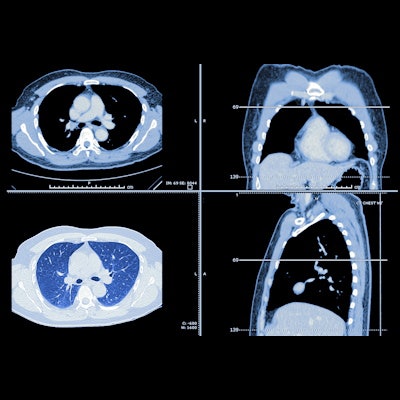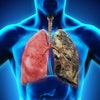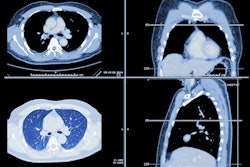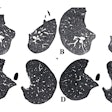
U.S. veterans of color are about 67% less likely to undergo low-dose CT lung cancer screening than white veterans, suggest findings published February 9 in AJPM Focus.
Researchers led by Dr. Alison Rustagi, PhD, from the University of California, San Francisco also found that one in five veterans had poor health and that one-third of veterans screened would not qualify for a pivotal lung cancer screening trial due to poor health.
"These results add to the importance of current efforts to increase lung cancer screening and support additional outreach to screen healthier veterans, especially non-white veterans who are appropriate candidates for screening," Rustagi and colleagues wrote.
Previous reports suggest that veterans are at higher risk for lung cancer, and that healthier individuals and those of color may not be getting the lung cancer screening they need. Along with that, lung cancer screening may not be suitable for people deemed to have poor health. Rustagi and colleagues sought to explore if low lung cancer screening among veterans is linked not only to poor health but also to race and ethnicity.
They considered data collected between 2017 and 2020 from 3,376 veterans eligible for screening, with an age range of 55 to 79 years. The veterans also had at least one of the following characteristics: a greater-than-30-pack-year smoking history, current smokers, or smokers who had quit within the past 15 years; none had prior lung cancer. Of the study cohort, 20.3% were deemed to be in poor health and 13.7% were people of color.
Rustagi's team found that 32.6% of veterans screened would not have qualified for the Nederlands-Leuvens Longkanker Screenings Onderzoek (NELSON) trial. The group also found that veterans who were not healthy enough to meet NELSON eligibility criteria were significantly more likely to report lung cancer screening than healthier veterans (i.e., 31.2% of NELSON-ineligible veterans who underwent lung cancer screening compared with 16.4% NELSON-eligible individuals; p = 0.002).
When it came to race and ethnicity, the researchers found that 6.2% of veterans of color reported lung cancer screening, compared with 21.7% of white veterans. After adjusting for covariates, the team found that disparities persisted in screening, with veterans of color being 67% less likely to report lung cancer screening than their white counterparts.
There is "an urgent need" for more research to determine who is healthy enough for lung cancer screening, the group noted -- and to better understand racial and ethnic disparities.
"If lung cancer screening moves towards risk-based eligibility, then consideration of overall health and life expectancy will be even more important, as such strategies tend to select older individuals who may be more frail," the authors wrote.





















